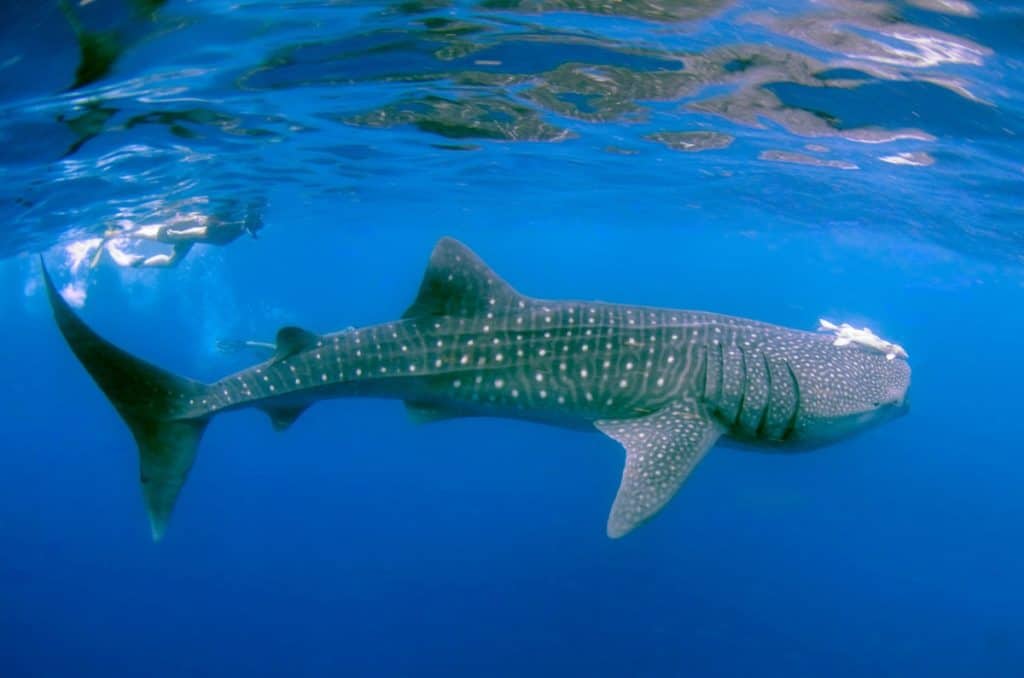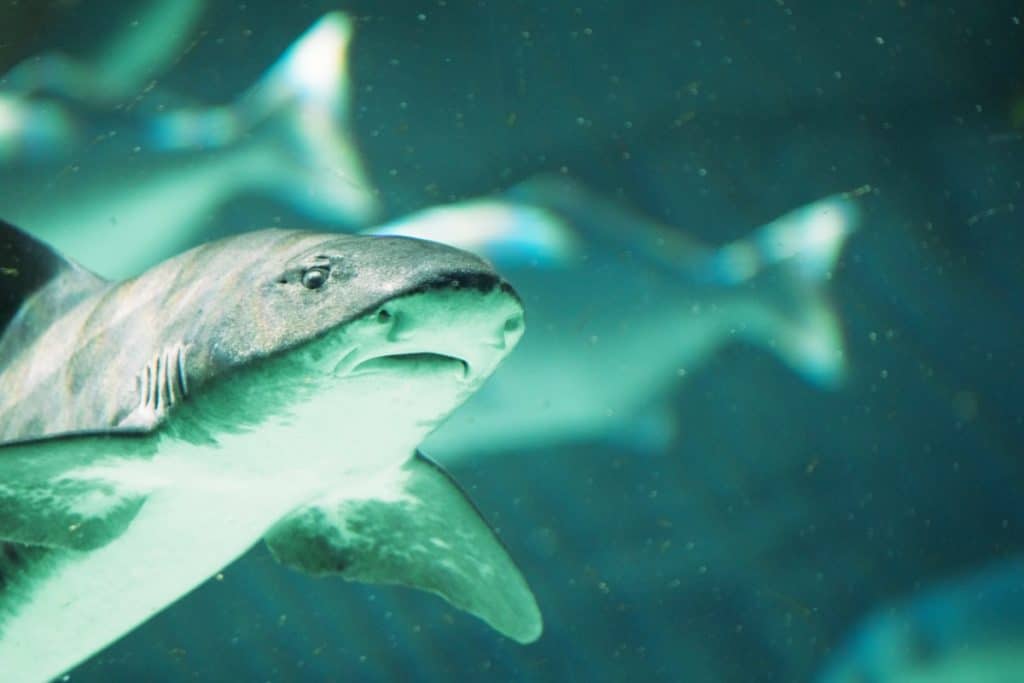
If you want to find out whether sharks can be identified as producers, consumers, or decomposers then you’ve come to the right article.
As, in this article, you’ll find the exact answer to this question and after you’ve read the answer to the main question then I’ll also cover the answers to a few more closely related questions to extend your knowledge further.
I hope you, therefore, learn a lot from this article.
Is a shark a producer, a consumer, or a decomposer?
Sharks are a large group of over 500 species of fish.
Like all other fish, they are consumers.
They are neither producers nor decomposers.
A consumer is an organism that feeds upon producers and/or other consumers.
Sharks are typically omnivores, meaning they feed on both plant and animal matter.
Some species, however, are carnivorous, meaning that the bulk of their diet comes from eating other animals.
Producers such as plants and algae convert inorganic nutrients and sunlight into energy, which allows them to grow.
Consumers are organisms that feed upon producers and/or other consumers, and in this way, the energy introduced by producers is transferred to other organisms further up the food chain.
Since sharks are higher on the food chain, they have to consume greater amounts of food to sustain themselves than animals lower on the food chain.
Like other animals with a high trophic ranking, sharks have less biomass, or available usable energy within them, than producers or lower ranking consumers.
While sharks are opportunistic feeders that will scavenge decaying animal meat, they are not considered decomposers.
Organisms that are classified as decomposers, such as bacteria and fungi, release enzymes that break down dead plant and animal matter before consuming it.
When sharks eat dead organisms, they do so through the normal process of digestion that is common to fish and other vertebrates.
Is a tiger shark a producer, a consumer, or a decomposer?
Tiger sharks are strictly consumers.
They are not producers or decomposers.
As large apex predators, mature tiger sharks have no natural predators.
They are opportunistic and non-selective omnivores that will eat just about anything available.
However, they prefer to eat meat.
For this reason, they are often considered carnivores.
If you want to see tiger sharks hunt albatross chicks then you should check out the video below.
Is a shark a primary consumer?
While some sharks are primary consumers, most are characteristically either secondary, tertiary, or quaternary consumers.
Primary consumers eat producers (plants), whereas secondary consumers eat primary consumers.
In a like manner, tertiary consumers eat secondary consumers and quaternary consumers eat tertiary consumers.
Many species of shark are omnivorous, which means that their diet includes both plants and animals.
Omnivorous sharks are primary consumers since they can and do eat vegetation.
Other species of sharks, especially those that are very large, are either secondary, tertiary, or quaternary consumers.
They primarily or exclusively eat other animals.
Omnivorous sharks are also secondary and potentially tertiary consumers depending on which animal flesh they eat.
Is a nurse shark a primary consumer?
Nurse sharks are not characteristically primary consumers since they do not tend to eat plants.
Rather, they are predators and secondary consumers that feed upon primary consumers such as small fish, crustaceans, and other marine animals.
Is a lemon shark a primary consumer?
Lemon sharks are predatory carnivores, so they are not primary consumers.
Primary consumers are organisms that subsist on plant matter or algae.
Lemon sharks are selective meat-eaters that prefer boney fish and crustaceans.
Since these animals eat both primary and secondary consumers, lemon sharks themselves are seen as secondary and tertiary consumers.

Is a shark a secondary consumer?
Sharks are secondary consumers since they eat or scavenge primary consumers, which in turn eat plant matter.
For example, sharks eat herbivorous marine species.
However, they also eat omnivorous and carnivorous species, which means that in addition to being secondary consumers, sharks can also be tertiary consumers and quaternary consumers.
Is a tiger shark a secondary consumer?
Tiger sharks are technically secondary consumers since they prey upon some crustaceans that are primary consumers.
However, tiger sharks chiefly eat omnivorous secondary consumers as well, so they are also and more accurately classified as tertiary consumers.
Because they are higher on the food chain, tiger sharks have larger bodies and require ingesting greater amounts of food than most secondary consumers.
For this reason, they tend to hunt larger prey.
Is a horn shark a secondary consumer?
Horn sharks are tertiary consumers since they consume secondary consumers.
Most of their diet is made up of invertebrate omnivores, such as crabs.
Crabs, themselves, are secondary consumers.
So, horn sharks are not classified as secondary consumers.
Is a shark a tertiary consumer?
Sharks can be seen as primary, secondary, tertiary, and quaternary consumers depending on which species you’re talking about.
Most shark species, however, primarily eat other consumers, including primary, secondary, and tertiary consumers.
Most species of sharks are omnivorous opportunistic feeders, meaning they feed on pretty much anything available, whether it’s a plant or an animal.
However, several species are carnivorous, meaning that the bulk of their diet comes from eating other animals and they require animal protein to sustain themselves.
Is a tiger shark a tertiary consumer?
Tiger sharks are tertiary consumers because they eat secondary consumers.
Since they are non-selective predators that will also eat primary consumers, they typically prey upon herbivorous and omnivorous animals.
In that sense, tiger sharks are best characterized as tertiary or even quaternary consumers whenever they decide to eat a tertiary consumer.
Is a shark a quaternary consumer?
Many species of sharks, such as tiger sharks and great white sharks are both tertiary and quaternary consumers.
They are predators at the top of the food chain that consume primary, secondary, and tertiary consumers.
When a shark eats the meat of a tertiary consumer, such as a sea lion, it is a quaternary consumer.

Is a shark a herbivore?
Certain shark species can be seen as herbivores, like, for example, the bonnethead shark which for most of its diet will eat vegetation.
Most shark species, however, are not considered herbivores because their diet includes animal protein as well.
Of the 500 species of sharks, most are omnivorous: they will eat both plants and animals.
Some shark species, however, are also carnivores, like, for example, the great white shark.
Check out the video below if you want to learn more about the herbivorous bonnethead shark.
Is a shark a carnivore?
Many sharks are carnivores, meaning that they primarily or exclusively eat other animals for sustenance.
However, most species of shark are non-selective and opportunistic feeders that eat a combination of plants and animal meats.
While all sharks can eat meat, only a small number of the 500 known species are considered exclusive carnivores.
Is a shark an omnivore?
While many of the most recognizable sharks such as tiger sharks and great white sharks are carnivores, there are over 500 species of shark that exist on this earth, and most of them are omnivorous.
These omnivorous shark species are non-selective feeders and opportunistic hunters that will eat a wide variety of plants and various other animals.
However, all the shark species that are obligate carnivores must eat meat to survive.

